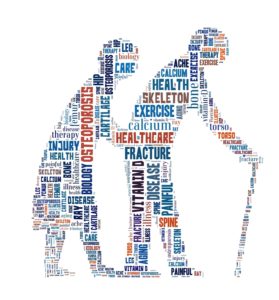
Senior Care in Southington CT: Five Osteoporosis Risk Factors
Osteoporosis is something that more and more people are thinking about regularly, but your senior may not understand what risk factors she might be personally facing. When you add up the potential risks, you get a better idea of how likely osteoporosis is for your elderly family member.
Family History of Osteoporosis
If family members in the past have had osteoporosis, your senior is more likely to develop osteoporosis herself. Hereditary factors are a big contributor to many different illnesses. If you’re not sure whether certain family members had osteoporosis or not, it might be helpful to see if you can find out whether they experienced broken bones, especially later in life.
Medical History of Broken Bones
Your senior may also have a history of having broken some bones, especially after she became an adult. This risk factor points to bones that are already weakened and that possibly are more vulnerable to repeat breaks. Hairline or stress fractures count as well.
Calcium Deficiency
Over time, calcium deficiency takes a toll on your senior’s bones. Some lifestyle choices and health issues can even leach calcium out of her bones, leaving her more susceptible to osteoporosis and to broken bones. Talk to your elderly family member’s doctor about how much calcium she should be getting in her diet and whether any other supplements might be beneficial to her. Recent research is finding that vitamin D is also crucial for bone health, for instance.
Extended Bed Rest
If your elderly family member is forced to spend extended periods of time resting in bed, that can create a situation in which her bones become weaker. Weight-bearing exercise, such as simple walking, can help to maintain bone strength. When your elderly family member isn’t even walking much, the effects are serious.
Some Medications Taken Long-term
Some medications, such as chemotherapy drugs, SSRIs, and anticoagulants, just to name a few, can contribute to osteoporosis. Some of these medications may be ones that your elderly family member absolutely needs to take, so there can be a big dilemma. Work with your senior’s doctor to determine the risks of taking certain medications and to formulate a plan for your senior’s best interests.
Understanding the risks of developing osteoporosis help your senior and her doctor make the best decisions for her future health care. If your elderly family member is already showing signs of osteoporosis, her doctor can help you to formulate a plan. Senior care providers can help you to implement that plan in the most effective way possible so that you can help your aging adult avoid breaking a bone.
If you are considering senior care in Southington, CT for your aging parent, please contact the caring staff at Franciscan Ever There Care. Call today 203-630-2881.

